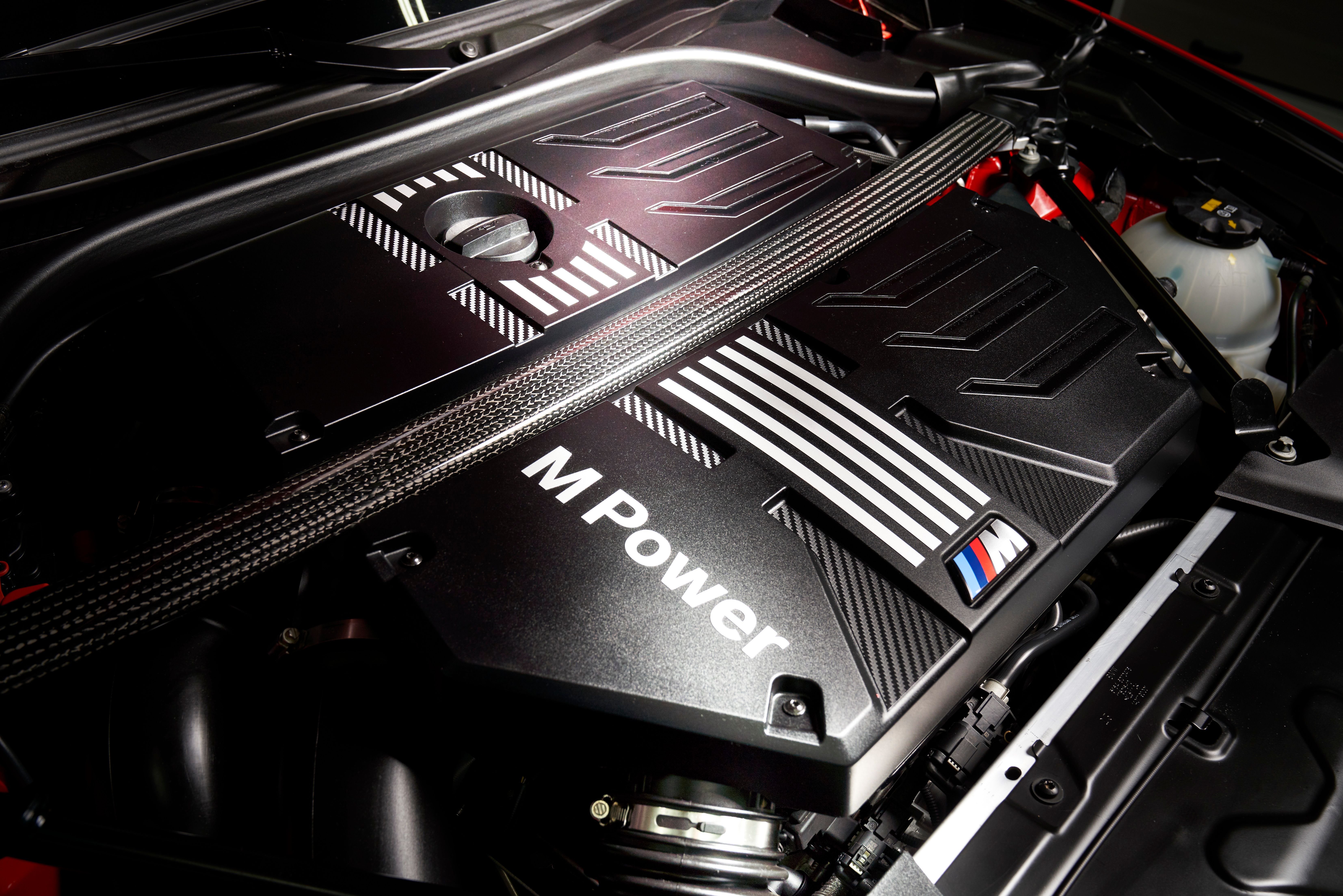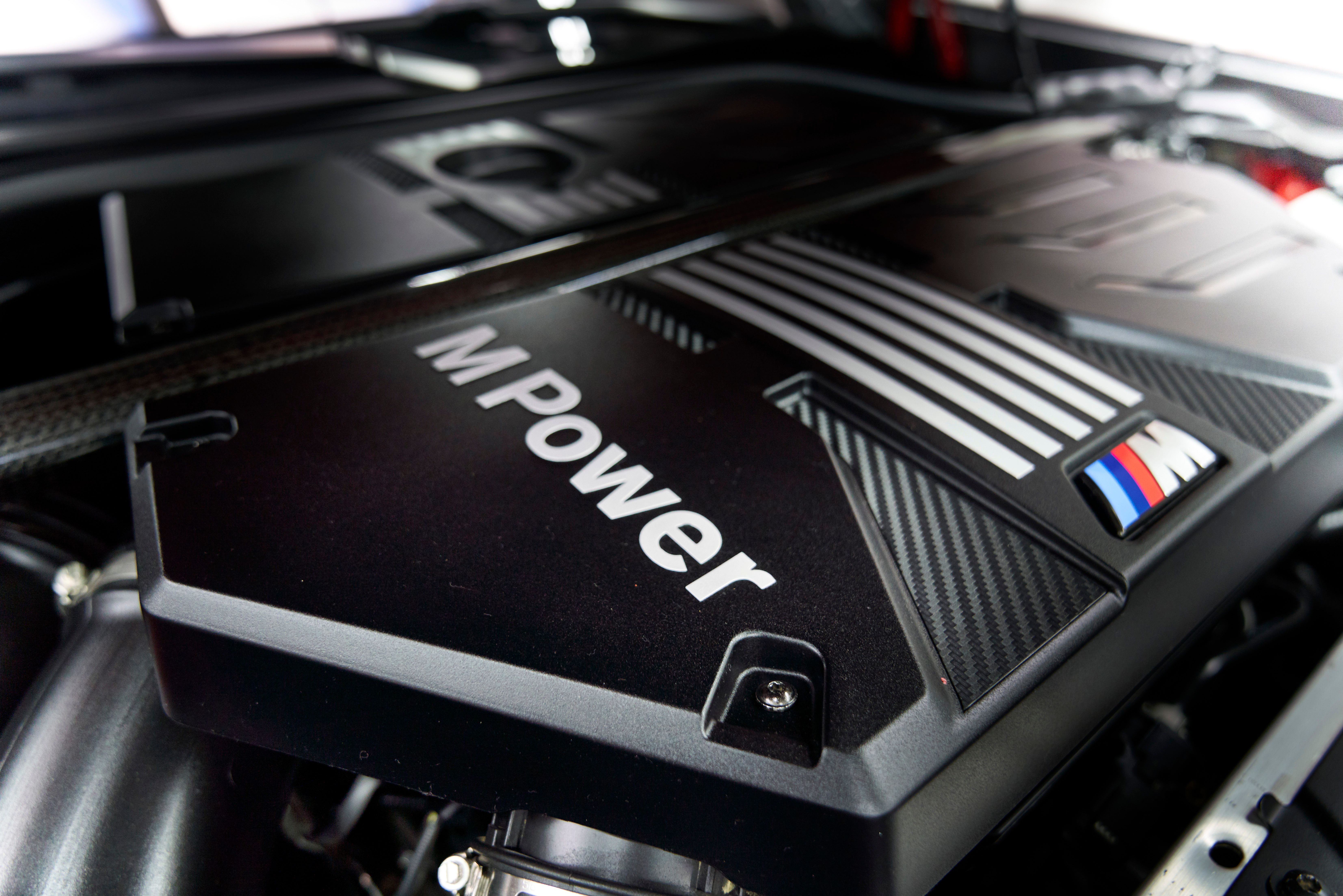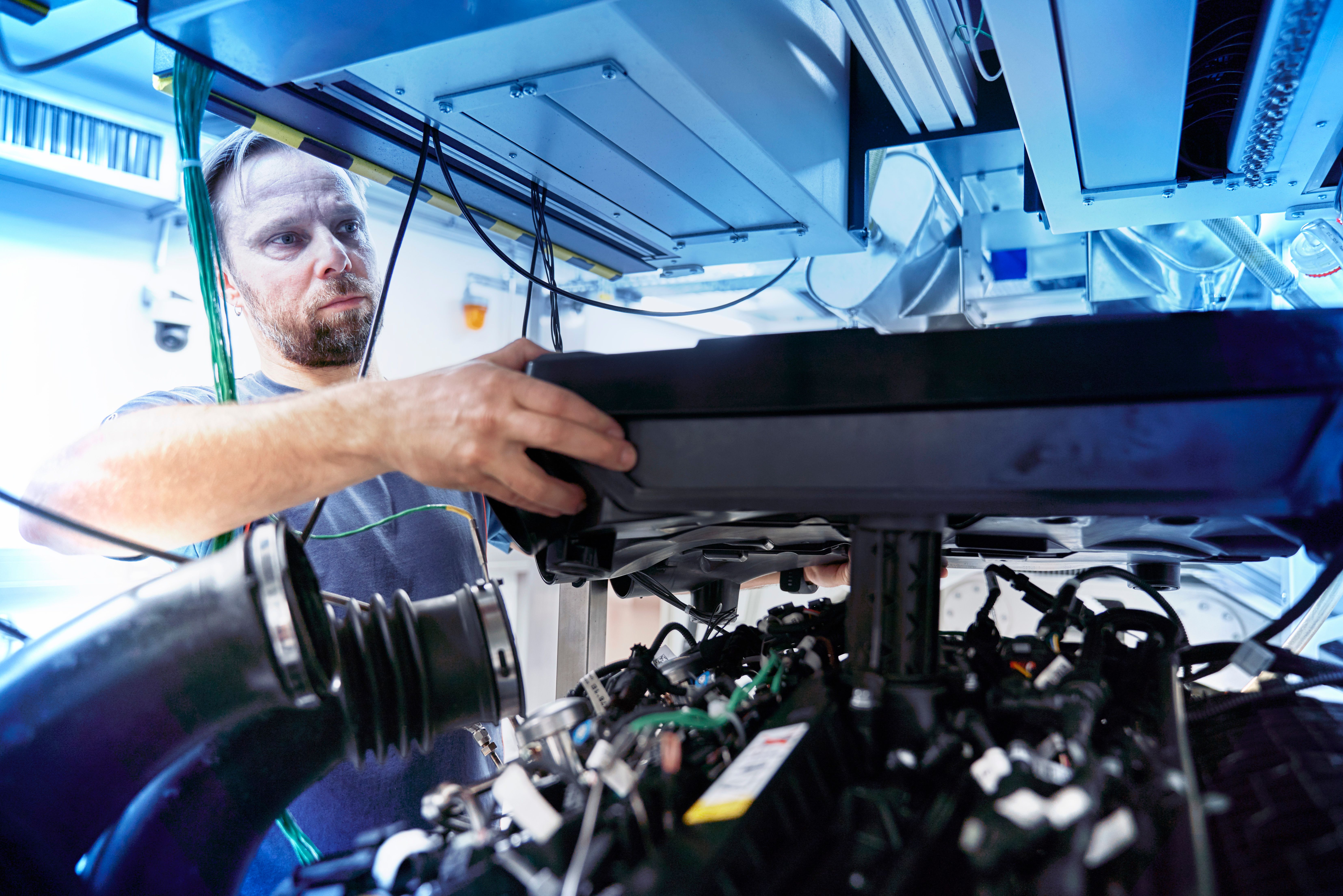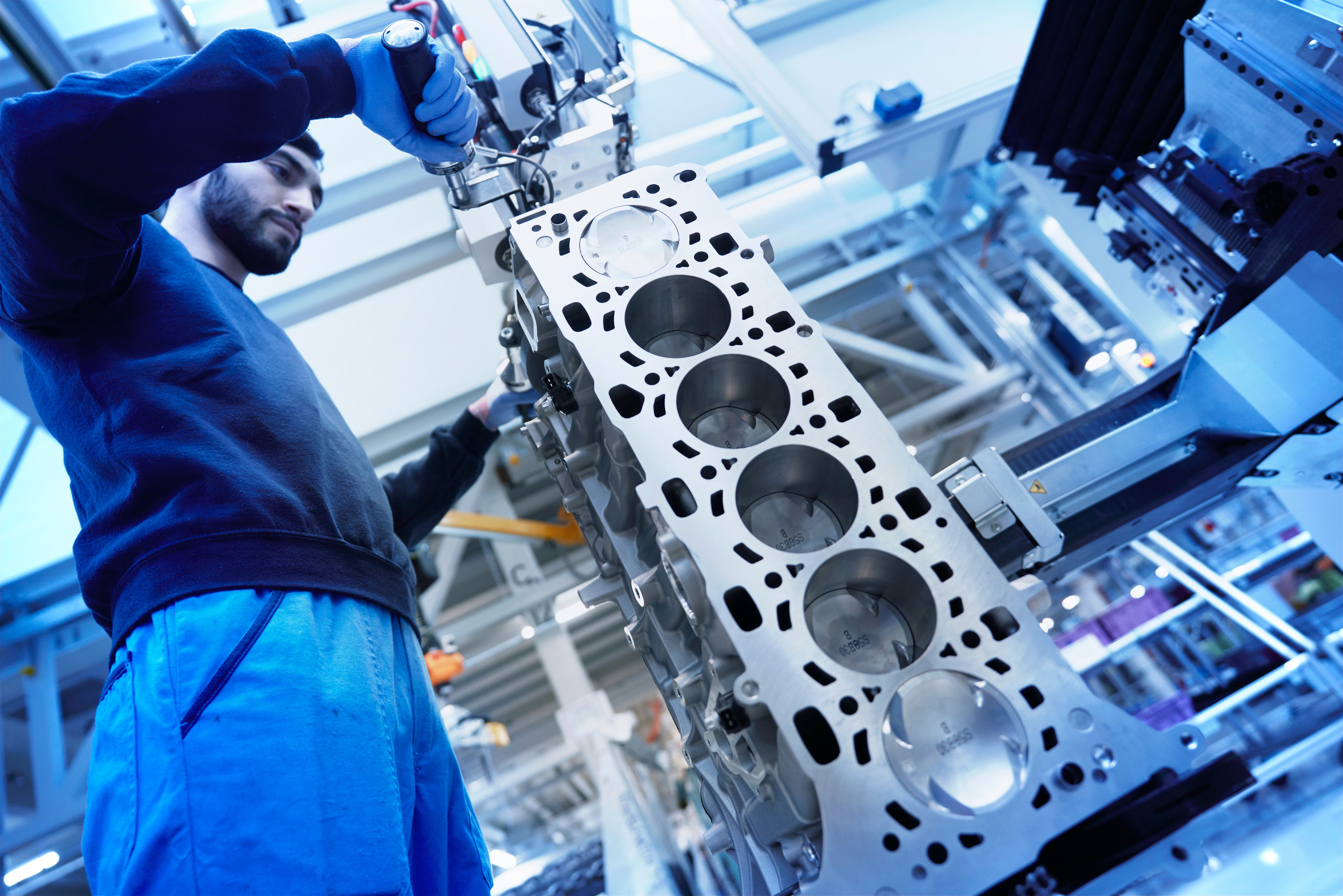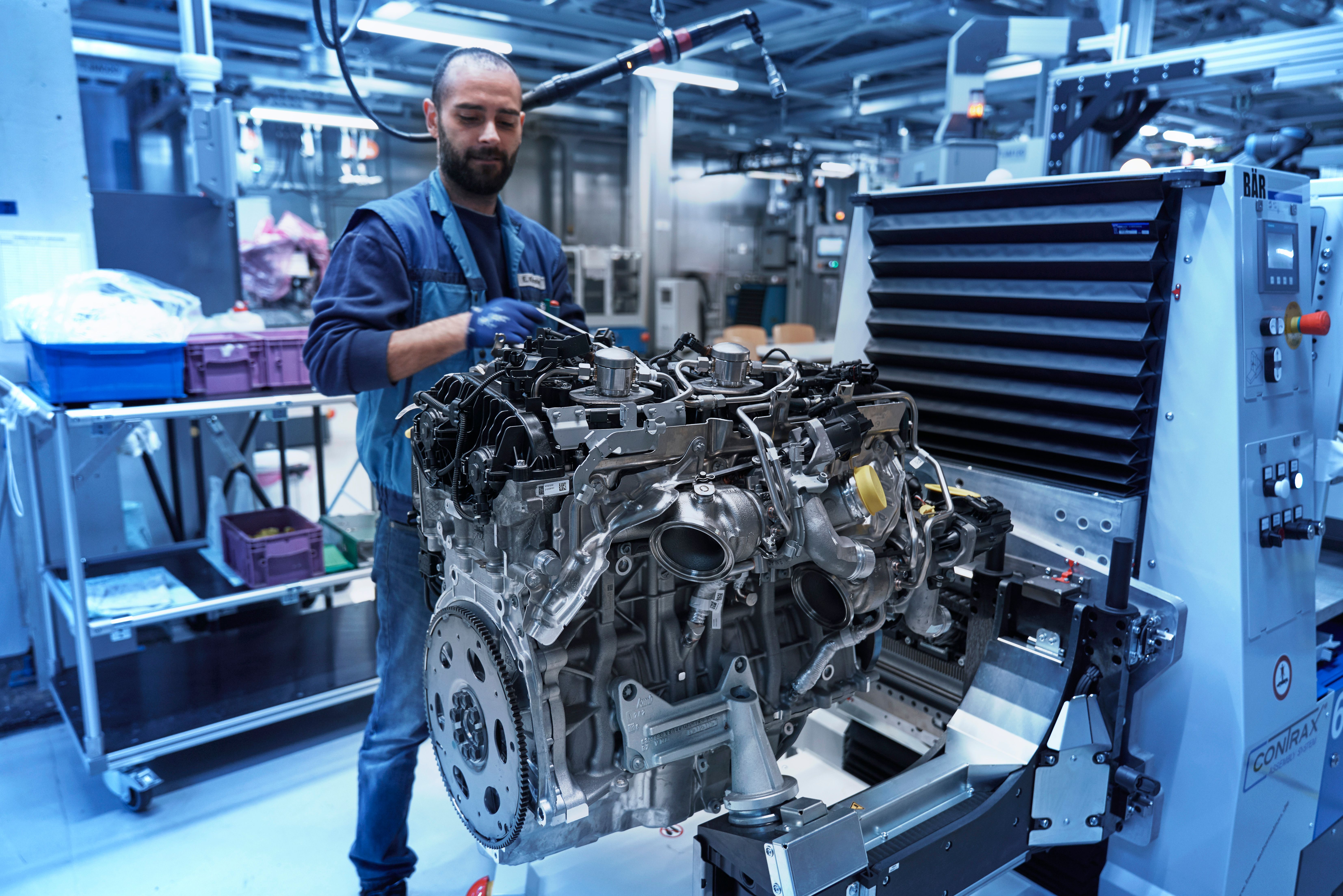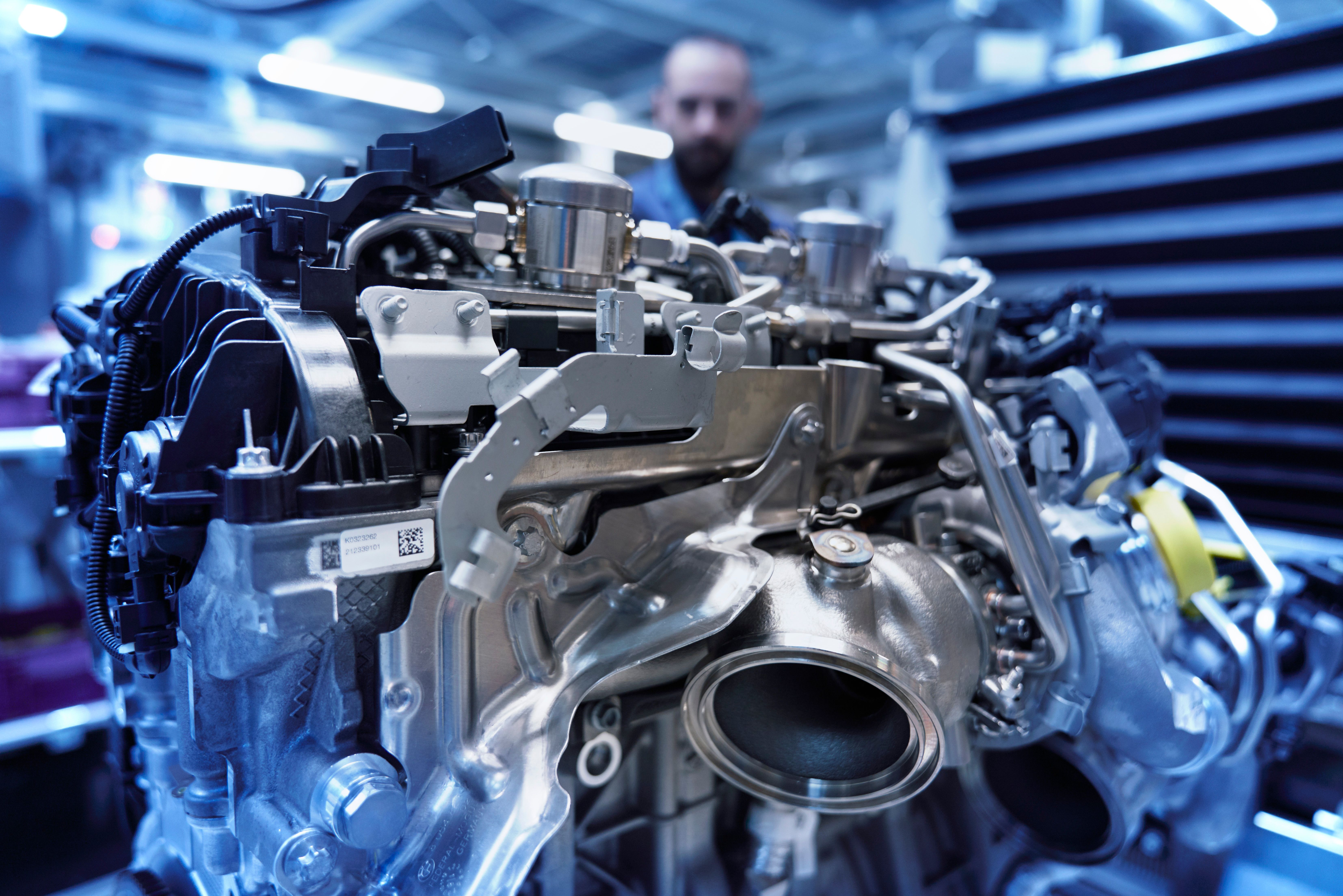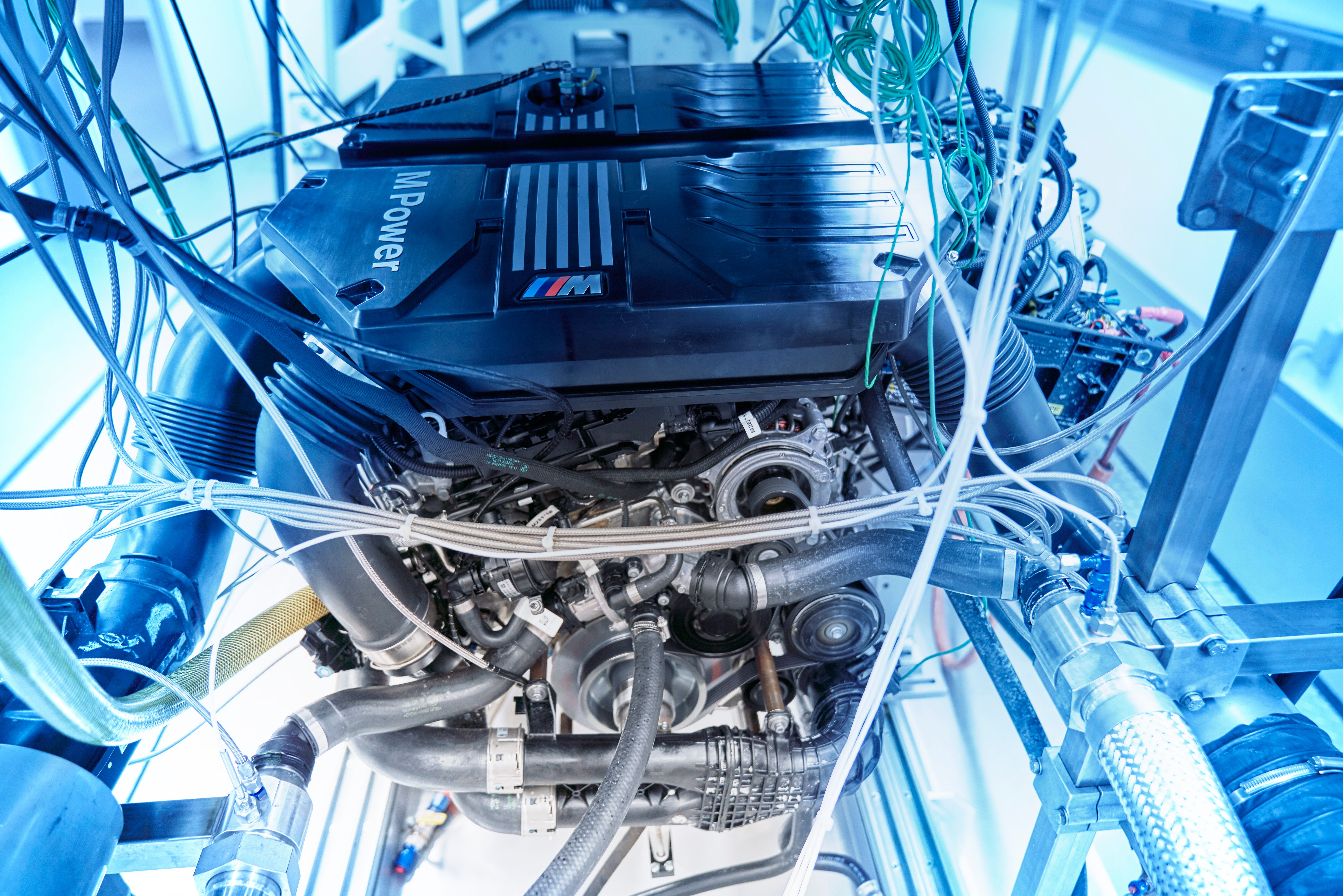The first-ever M versions of the X3 and X4 broke cover somewhat unexpectedly in February 2019, joining the larger X5 M and X6 M to complete BMW's four-vehicle lineup of beefed-up SUVs. And, while the X3 M, the first of its kind in 16 years, is big news, there's even bigger news under its hood, where BMW dropped a brand-new high-performance engine. It's called the S58 and replaces the already iconic S55.
Does BMW's S58 Engine Signal the Birth of a Legend?
As the name suggests, the S58 is built around BMW's B58 modular engine. The B58 was introduced in 2015, and it's been used in almost all Bimmers until 2019, including the latest 5 and 7 Series, the new 3 Series, and the X7. It's also offered in the latest Z4, it's shared with the Toyota Supra, and power a few M-badged models like the Z4 M40i, M340i, M140i, and M240i. As you might have noticed, full-fledged M cars do not use the standard B58.
That's because vehicles like the M3, M4, and M2 Competition draw juice from the S55, the high-performance version of BMW's old N55 unit the same model that is being phased out as we speak. That's where the new S58 comes in, as it will replace the S55 across the board.
Although it's not an entirely new engine, the S58 takes performance to a new level and enables M-badged Bimmers to comply with increasingly stringent emission regulations. The latter became a big issue for the S55. In early 2018, BMW announced that it would cease production of the M3 in May 2018, as the current sedan would not be able to comply with new emissions regulations from the Worldwide harmonized Light vehicles Test Procedure (WLTP). Specifically, the current M3 needs a particulate filter, and installing one on the S55 requires significant re-engineering, so BMW opted to wait for the S58. This new unit has everything it needs to pass WLTP regulations and will remain compatible for several years.
The S58 is a big improvement when it comes to power as well. Rated at 473 horsepower and 442 pound-feet of torque in the new X3 M and X4 M, and at 503 horses in the Competition versions, it's the most powerful six-cylinder gasoline engine BMW has built so far. There's no previous-gen version of the X3 M to compare it to, but we can look back at the S55 that's offered in the M3 and M4. The standard S58 offers an extra 55 horsepower and 36 pound-feet over the standard M3 and M4, and it even climbs above the M3 CS by 26 horses. The engine in the M4 GTS still reigns supreme at 493 horsepower and 443 pound-feet, but the Competition version of the S58 generates an extra ten horses at 503 horsepower. And, it's safe to assume that there's plenty of room for improvement.
While the S55 left enthusiasts complaining about BMW's decision to discontinue the naturally aspirated S65 V-8 engine, the S58 will finally make nostalgics forget about it.
The BMW S58 Engine Has Some Mighty Big Shoes to Fill
Replacing the S55 is a difficult mission. This already iconic mill was featured in a long list of high-performance bimmers starting with the 405-horsepower M2 Competition. It also powers the M3 and M4 and their Competition counterparts, rated at 425 and 444 horsepower, respectively. Output reached 453 horses in the M3 CS and M4 CS, and peaked at 493 horsepower in the M4 GTS.
Needless to say, the Competition-spec S58 is already more powerful than the S55 at 503 horsepower, but BMW will need more than an extra ten horses in upcoming limited-edition versions of the M3 or M4. A successor to the M3 CS will require at least 520 horsepower, while a next-generation M4 GTS would be pointless without at least 550 horsepower. It remains to be seen whether the S58 is capable enough, but BMW stuffed enough technology in this engine to make it happen.
While it continues to have two mono-scroll turbochargers, just like the S55, the S58 features upgraded compressors and an intercooler powered by a low-temperature circuit. There's also a new, flow-optimized air intake system that reduces pressure loss and an electronically controlled wastegate that improves responsiveness. Maximum injection pressure is up from 200 to 350 bar thanks to new high-precision injection technology. This enables a more efficient mixture preparation, which reduces emissions at high speeds and under full throttle. The Valvetronic fully variable valve timing and the Double-Vanos variable camshaft timing technologies further contribute to the increased output and reduced emissions.
A more powerful engine needs better cooling, so BMW developed larger radiators, added a new engine oil cooler, and fitted a separate transmission oil cooler. A map-controlled oil pump lubricates the internal components during high lateral acceleration thanks to a new oil sump with two chambers and an integrated suction channel.
The technology is there; all BMW needs to do now is prove the engine's capability and reliability in the X3 M and X4 M before forcing it to deliver more oomph in upcoming models.
Will BMW Put the New S58 Engine in Other M Models?
Speaking of upcoming vehicles, the S58 won't remain restricted to the X3 M and X4 M. This engine will also find its way into the next-generation M3 and M4, which should break cover by the end of 2019. Power ratings are likely to remain unchanged, though. Both the M3 and M4 will hit the market with 473 horsepower and 442 pound-feet of torque on tap, while the Competition models will benefit from the 503-horsepower rating. The cool thing is that the M3 Competition and M4 Competition will debut alongside the regular models, just like it happened with the X3 M and X4 M. This is a big deal because, up until now, the Competition package was a facelift-like upgrade that replaced the regular model.
This strategy will also enable BMW to better compete against Mercedes-Benz, which offers AMG products in base and S forms. Both sedan and coupe versions of the AMG C63 are sold like that and deliver similar power ratings at 469 and 503 horsepower. But it remains to be seen if the M3 and M4 will be quicker than their rivals, an important thought given that the X3 M is notably slower than the Mercedes-AMG GLC63.
Next up, the S58 will most likely find its way into the next-generation M2. It's worth noting that the S55 wasn't offered in the M2 at first. Instead, BMW opted for a higher output version of the regular N55. It was only in 2018 that BMW finally dropped the S55 into the M2 Competition. Rated at 405 horsepower, it was a slightly detuned version of the M4's engine. The next-gen M2 will feature the S58 from day one, and it will be more powerful than the outgoing M2 Competition. Given that the M3 and M4 will boast 473 horsepower, there's a big chance that the upcoming M2 will surpass the old M3 and M4 output-wise. The base model could generate close to 430 horsepower, while the M2 Competition will probably arrive with 450 horses on tap.
Once the new M2, M3, and M4 are out, BMW will start working on more extreme, limited-edition versions of these cars. New CS versions of the M3 and M4 are likely to follow, both with well in excess of 500 horsepower. I'm betting on at least 525 horses. Finally, an M4 GTS should hit dealerships with at least 550 horsepower at its disposal at some point. A more track-oriented version of the M2 Competition with close to 480 horsepower is in the cards too.
Will BMW's New S58 Replace the V-8?
The big M vehicles like the M6, X5 M, and X6 M still rely on the twin-turbo, 4.4-liter V-8, but this mill will need an overhaul soon, mostly to comply to new emissions regulations. While BMW might have the resources to develop a new V-8, it could opt to replace it with the S58. That's a solid possibility if you ask me, especially since the new six-cylinder is capable of generating in excess of 500 horsepower. It won't be long until the 3.0-liter will have what it takes to match the V-8's current 600-horsepower rating. Sure, it won't sound as cool, but it will return better fuel economy.
2020 BMW X3 M - drivetrain specifications
Further Reading
Read our full review on the 2019 BMW X4.
Read our full review on the 2018 BMW X3.
Read our full review on the 2020 BMW X3 M.
Read our full review on the 2020 BMW X4 M.

